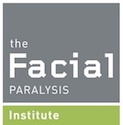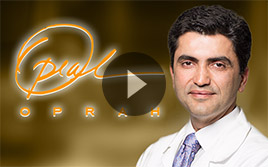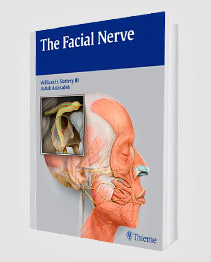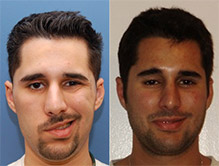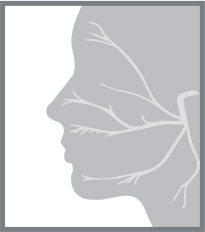The difficulties presented by facial paralysis or Bell’s palsy can result in long-term oral complications. Facial paralysis often results in muscle weakness, which changes the way that patients eat, drink, and talk. As a result, facial paralysis can cause a myriad of unpleasant side effects, many of which pose a threat to maintaining good oral health. Facial paralysis patients are prone to biting the surface of their inner gums on the affected side, which can lead to ulcerations and infection. The lack of facial muscle control can also make it difficult for facial paralysis patients to smile, frown, and produce other facial expressions.
What Is Facial Paralysis?
Facial paralysis involves the loss of facial movement. It causes the facial muscles to droop or become weak. Also, facial paralysis may affect one or both sides of an individual’s face.
There are many reasons why facial paralysis occurs, and these include:
- Head trauma
- Tumor on the head or neck
- Facial nerve infection or inflammation
- Stroke
Facial paralysis symptoms may occur instantly or worsen over the course of several months. Meanwhile, how long an individual experiences facial paralysis symptoms vary.
What Is Bell’s Palsy?
Bell’s palsy is the primary cause of facial paralysis in the United States. It causes immediate facial paralysis or weakness on one side of the face.
People can experience Bell’s palsy due to a herpes strain that lives on the seventh facial nerve. Research is also underway to determine if getting a coronavirus (COVID-19) vaccine can result in Bell’s palsy symptoms. To date, the U.S. Food and Drug Administration (FDA) has not listed Bell’s palsy as a potential side effect of any COVID-19 vaccines.
For those who believe they are dealing with Bell’s palsy, consulting with a doctor is key. At this point, a doctor will perform a neurologic and ear, nose and throat (ENT) assessment. Additionally, a tearing test function, computed tomography (CT) scan and magnetic resonance imaging (MRI) testing may be required to provide an accurate Bell’s palsy diagnosis. In some instances, an electromyography or electroneurography (ENoG) may also be performed.
Dental and Oral Health Issues Associated with Facial Paralysis and Bell’s Palsy
People dealing with facial paralysis or Bell’s palsy may be more susceptible than others to a variety of oral health issues, such as:
- Tooth Decay: Refers to the destruction of tooth enamel, the hard, outer layer of the teeth. Tooth decay occurs when bacteria in plaque attack tooth enamel. In this instance, tooth enamel gradually starts to break down, increasing the risk of cavities.
- Gum Disease: Causes gum and jawbone damage. Gum disease affects approximately 3 million Americans annually. There are two types of gum disease: gingivitis and periodontitis. Gingivitis causes the gums to swell and bleed. Comparatively, periodontitis destroys gum tissue and may cause the teeth to become loose over time.
- Salivary Gland Disorders: Increase the risk of dry mouth and tooth decay. The salivary glands help break down food during the digestive process, and they produce saliva that helps protect the teeth. However, salivary gland swelling or infections may result in reduced saliva production, leading to tooth and gum damage.
Facial paralysis or Bell’s palsy may make it tough for people to wear dentures properly, too. The normal cheek tone helps keep dentures in position. Yet if the cheek becomes floppy, it may be virtually impossible for an individual to securely fit dentures inside his or her mouth.
In certain instances, facial paralysis or Bell’s palsy can alter a person’s taste as well. These instances occur when the chorda tympani branch of the facial nerve is weakened or paralyzed.
Bell’s Palsy and Dental Treatment: Here’s What You Need to Know
The effects of Bell’s palsy vary, depending on the patient. Therefore, determining the appropriate dental treatment for patients with Bell’s palsy can be challenging.
To identify the ideal treatment for Bell’s palsy, a patient should undergo a medical assessment at symptom onset. That way, the patient can receive appropriate testing to determine the severity of their symptoms. The patient can also receive a personalized treatment recommendation.
Typically, mild cases of Bell’s palsy clear up on their own within about two weeks of onset. These cases generally do not require treatment.
In moderate or severe cases of Bell’s palsy, medications can be used to treat symptoms. For example, corticosteroids can be used to reduce inflammation. Medications are usually most effective if they are used immediately following symptom onset.
If Bell’s palsy symptoms do not subside after a patient receives medication, surgery may be necessary. At this time, selective neurolysis can be used to correct abnormal regeneration of the facial nerve. Also, a “supercharging” procedure offers an alternative to selective neurolysis. This procedure involves strengthening the facial nerve, so the facial muscles can function properly.
Is Bell’s Palsy Dental Work Necessary?
Along with consulting with a facial plastic and reconstructive surgeon to treat Bell’s palsy, meeting with a dentist can be beneficial. A dentist can perform routine cleanings to ensure a Bell’s palsy patient can avoid oral health problems. If the dentist identifies oral health issues, he or she can help the patient correct them, too.
Like a facial plastic and reconstructive surgeon, a dentist performs an in-depth patient assessment to determine if Bell’s palsy dental work is necessary. The dentist can also use various tests to evaluate the patient’s teeth.
If dental work is required, a dentist can provide a patient with a treatment plan. The dentist may recommend the patient use a therapeutic mouthrinse and irrigation, interdental brushes, and/or flossing aids. If the patient is dealing with severe oral health problems, extensive dental work may be required.
Dental and Oral Health Considerations for Facial Paralysis and Bell’s Palsy Patients
It’s easy to take for granted the things that our bodies do on autopilot. Most people don’t have to worry about the way that their facial muscles are working while they enjoy a meal, but this can be a large source of anxiety for patients with facial paralysis.
For facial paralysis patients, the physical motion of chewing and drinking can result in drooling of saliva and food contents, which can be embarrassing. Eating and drinking in public is common, yet patients with facial paralysis often avoid it at all costs. This can lead facial paralysis patients to forgo birthday parties, barbecues, and other social events. It can also cause feelings of depression, anxiety, and stress that escalate over time. As these feelings worsen, they can cause facial paralysis to isolate from family members, friends, and coworkers.
Meanwhile, to avoid drooling, facial paralysis patients may chew all of their food on the unaffected side of their mouth. While this may seem like a good idea, it can actually result in jaw pain and disorders like temporomandibular joint dysfunction. For these patients, education, facial reanimation surgery, neuromuscular retraining, home dental hygiene (brushing and flossing), routine dental examinations, and periodontal appliances are among the treatments that may be necessary to avoid long-term oral health problems.
Dry mouth can also be an unwanted side effect of facial paralysis. Saliva plays an important role for the health of the mouth. It prevents root decay, cracked lips, rough tongue, and bad breath. Most importantly, dry mouth reduces the risk of infection on the tongue, cheeks, and gums.
To treat dry mouth, dentists may recommend mouth rinses that have fluoride and apply fluoride varnishes during the dental visits. Over-the-counter medications such as Biotine have also been shown to help patients combat dry mouth. Sugar-free gum, sugar-free hard candies, and ice chips can help relieve dry mouth as well. It is always recommended that patients avoid carbonated drinks, caffeine, alcohol, and tobacco and use of lanolin-based lip balm to help moisturize their dry lips.
When we eat, it’s common for small pieces of food to get stuck between the gums and cheeks. For most people, this is not a problem, because they can sense the food in their mouth and use their tongue to dislodge it. When a patient with oral numbness and/or dry mouth syndrome has this experience, they will not notice the food in their mouth. And, if food particles remain in the patient’s mouth for an extended period of time, this can lead to severe tooth decay.
Furthermore, a patient with oral numbness and/or dry mouth syndrome may bite their inner gums and have no idea he or she is doing so. In this instance, the patient is susceptible to severe ulcerations and infection.
Ultimately, it is important for facial paralysis and Bell’s palsy patients to be aware of these potential long-term issues. By scheduling regular dental exams, patients can address these problems in their early stages.
Choose The Facial Paralysis Institute for Facial Paralysis or Bell’s Palsy Treatment
There is no reason to let facial paralysis or Bell’s palsy cause long-lasting dental or oral health issues. Fortunately, The Facial Paralysis Institute helps patients address their facial paralysis or Bell’s palsy symptoms before they get out of hand. Led by globally recognized facial plastic and reconstructive surgeon Dr. Babak Azizzadeh, The Facial Paralysis Institute team possesses comprehensive facial paralysis and Bell’s palsy treatment expertise. As such, this team helps patients quickly and effectively treat their facial paralysis or Bell’s palsy symptoms.
In summary, there are many important considerations that both patients and dentists should take into account when dealing with facial paralysis and Bell’s palsy. Educating patients about how facial paralysis can affect their oral health is of the utmost importance so that the patients practice proper home dental hygiene, such as brushing and flossing, as well as go in and see their dentist for routine dental exams. At the Facial Paralysis Institute, we recommend our patients find a dentist to be one of the members of their team of facial paralysis experts. If you are located in the Los Angeles area, we recommend Katrin Azizzadeh, DDS, who has special expertise in dental care for patients with facial paralysis.
Request your consultation with Dr. Azizzadeh today
Call us at (310) 657-2203 to schedule an appointment.
Schedule a Consultation